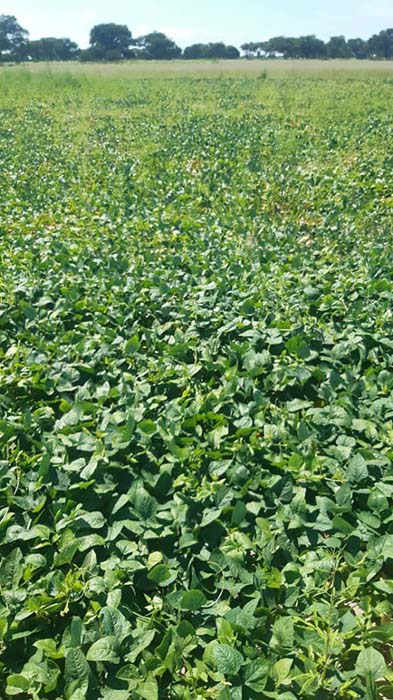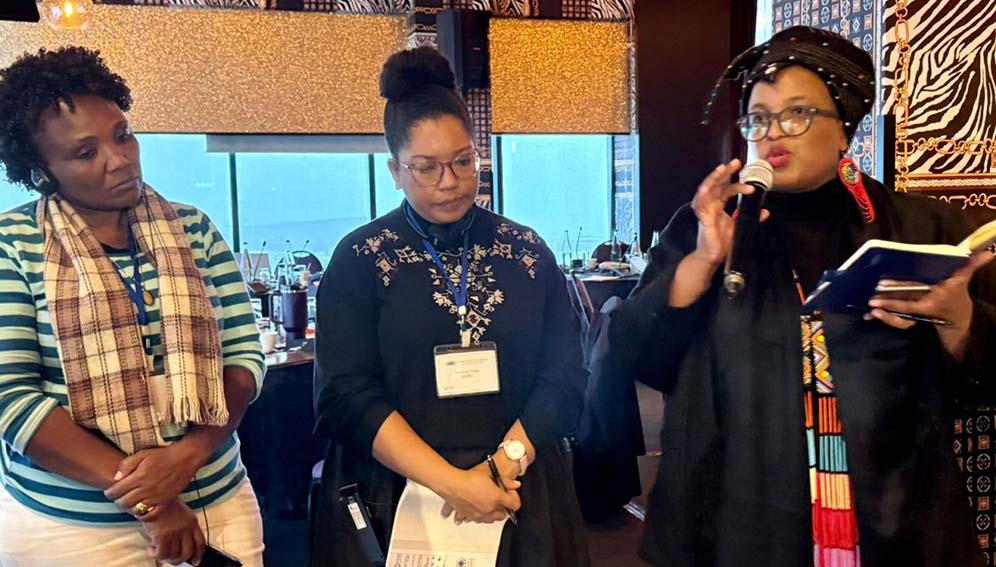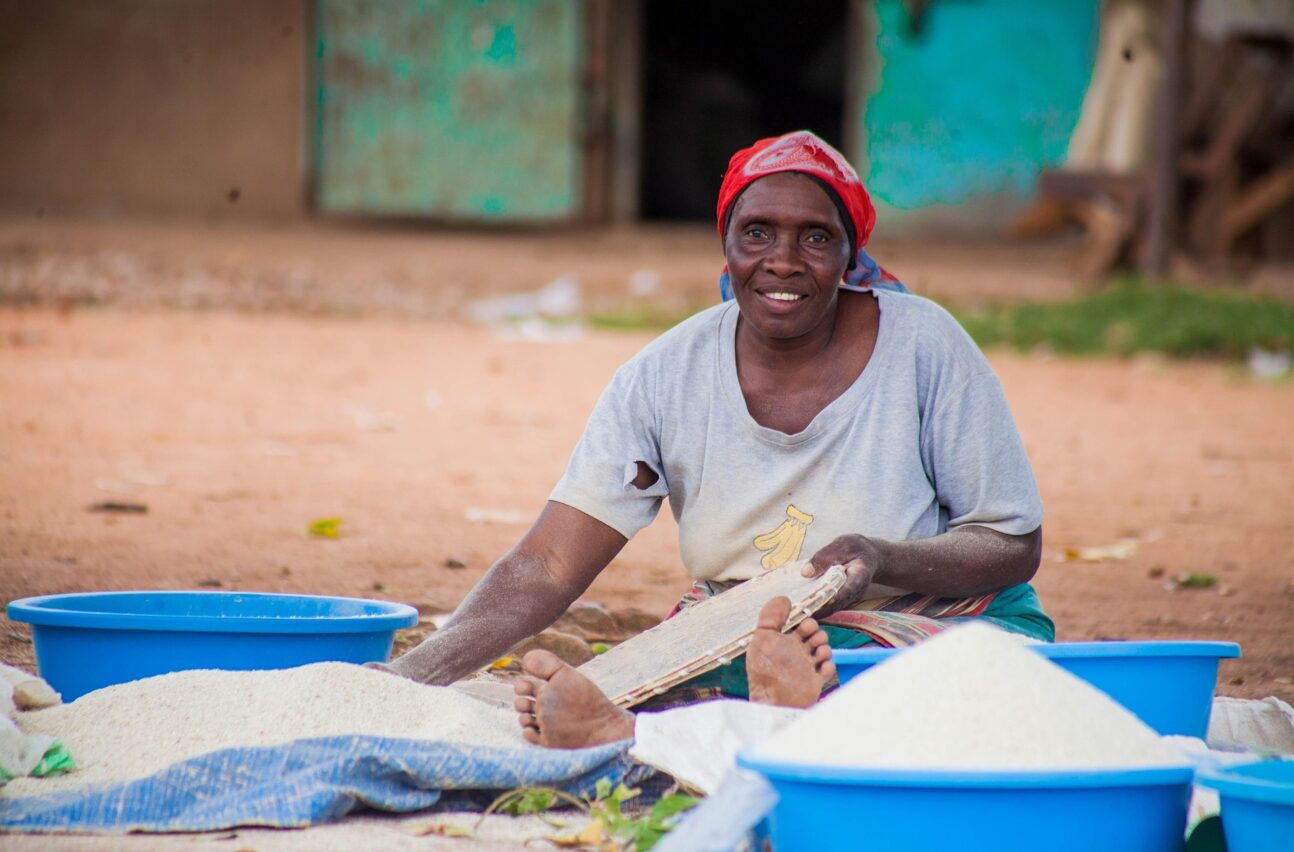SGCI News
[NAMIBIA] A lack of protein is a major contributor to malnutrition in low- and middle-income countries, where many people’s diets are heavily dependent on staple crops. To tackle this problem in Namibia,…
[NAMIBIA] A lack of protein is a major contributor to malnutrition in low- and middle-income countries, where many people’s diets are heavily dependent on staple crops.
To tackle this problem in Namibia, researchers started a food and nutrition project to train farmers in the use of a biofertiliser to produce protein-enriched legumes.
The project, led by researchers from the Namibia University of Science and Technology, introduces smallholder farmers in the Mayana community of Kavango East region to biotechnology techniques, in an effort to address critical challenges in agricultural productivity and nutrition.
Natilia Rengi, a farmer from the community, once struggled to produce enough food for her family of 12 but has seen yields swell since adopting the biofertiliser.
“We didn’t use to cultivate as much,” she says.
“[But] I can proudly say we harvest enough now to feed our family.”
For Rengi, the project means the difference between struggling to sustain her large family and feeding them nutritious meals.
Her story is one of many from the region, where farmers are seeing an improvement in their food production and livelihoods because of this initiative, which is funded by the Science Granting Councils Initiative.
According to Oswald Mughongora, senior program officer for grant management at Namibia’s National Commission on Research, Science, and Technology, the scheme aligns with the country’s broader goals of climate-smart agriculture and indigenous knowledge integration.
The project, named the Food Security and Nutrition Improvement through Protein-Rich Legume and Low-Cost Biotechnology in Namibia (FOODSECBIO), started in 2021 and is on track to be completed by July 2025.
Five biofertilisers
“One of the key outputs of this initiative is the development of a locally produced biofertiliser,” Mughongora says.
He says the project helps address soil fertility as well as malnutrition and food security concerns in Namibia.
Percy Chimwamurombe, the lead researcher of the project from the Namibia University of Science and Technology, says his team has developed five biofertilisers. They started by identifying the bacteria that are most suitable for promoting growth.
The researchers isolated bacteria from the soil environment of legume plants and selected the bacteria with plant growth-promoting characteristics in the laboratory.
“We were mostly interested in their nitrogen-fixing capacity,” says Chimwamurombe.
Around 30 farmers have so far received training on how to use the biofertilisers. Farmers were also trained in crop production methods for cowpea, pearl millet, and bambara nut, which are all rich in protein, and on how to produce protein-enriched pearl millet flours to feed infants.
Effective farming
Sofia Kamburu, a 34-year-old farmer, says she has expanded her crops to include beans, pearl millet, groundnuts, and bambara nuts.

“We’ve learned how to plan and when to plant, depending on different seasons,” she says.
“In the past, we relied on good rains in November and December, however this year we prepared our fields before the rainy season, waiting for the rains in January for better germination.”
Adopting biofertilisers and improved soil preparation techniques has enhanced her agricultural knowledge, she adds.
Alta Ngoma, 30, had been unemployed for three years when she learned new harvesting skills through the project. She now hopes to cultivate her own field in the future.
“This project has completely changed my life,” says Ngoma.
“Previously, I had no income or experience. We often struggled to buy maize meals, which cost around 150 Namibian dollars [US$8.3] for a ten-kilogram bag.
Since October, Ngoma has been earning an income, enabling her to afford her child’s school fees.
Another female farmer, Apolionia Kavahu says: “We have learned how to farm effectively. I once doubted that anyone could make a living through farming, but now we can also teach our children how to do it better in the future.”
Child malnutrition
Chimwamurombe believes the FOODSECBIO project could play an important role in providing alternative nutrition to combat child malnutrition in the country.
He is confident that protein deficiency is a problem that this project can defeat if all concerned parties unite on the issue.
Namibia’s first PhD holder in plant breeding, Lydia Horn, stresses that seed availability is important in promoting food security and combating hunger.
She says: “Jobs can be created and food security can be improved by making seeds available at a low price so that everyone can grow their meals.”
This piece was written by Charlotte Nambadja.
Related News
TETFund, Innov8 Hub showcase innovations at research demo day
The Tertiary Education Trust Fund (TETFund) and Innov8 Hub have concluded the Science Granting Councils Initiative (SGCI) Demo Day, an event that highlighted Nigeria’s growing capacity to transform academic research into market-ready solutions. TETFund, Nigeria’s representative council for SGCI, partnered with Innov8 Hub to support…
HSRC pushes for inclusive research systems at SGCI gender summit
The Human Sciences Research Council (HSRC) hosts the Science Granting Councils Initiative (SGCI) Gender Equality and Inclusion (GEI) learning summit and calls for a more inclusive research landscape. The event marked the culmination of a three-year project aimed at embedding gender equity and inclusivity into…
SGCI-funded research wins science prize in Côte d’Ivoire
A Science Granting Councils Initiative (SGCI) funded research has earned national recognition in Côte d’Ivoire. The winner, Rodrigue Adjoumani Kouakou, is the assistant professor of chemistry, physics, and process engineering at the Training and Research Unit for Fundamental and Applied Sciences (UFR SFA) of Nangui…
Research and Resources
SGCI funded projects
Zambia’s top researchers pioneer solutions for climate resilience, food security, economic growth
Project Titles & Institution Areas of Research Number of Projects being funded Project Duration Grant Amount In-Kind Distribution Council Collaboration with other councils





